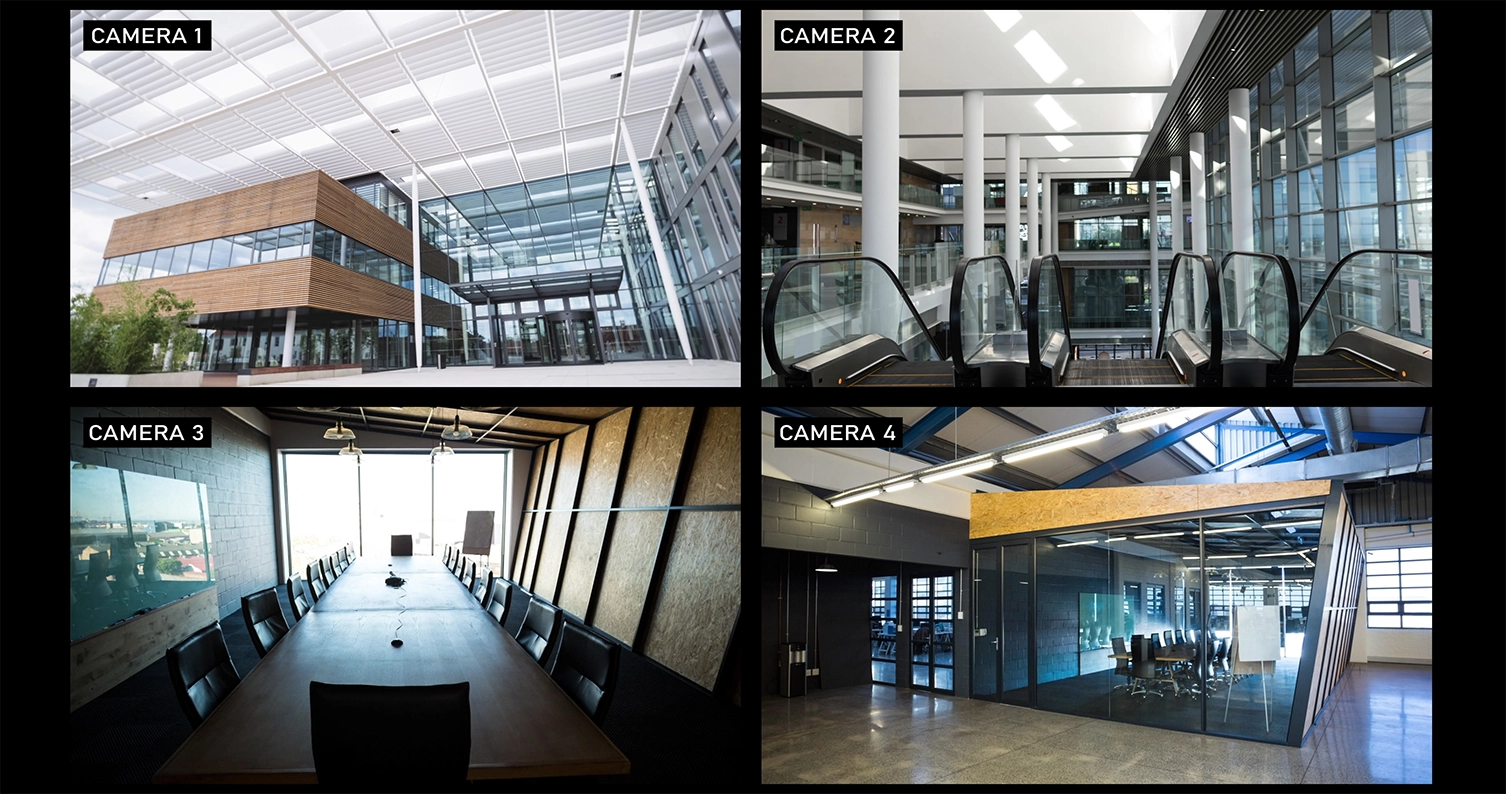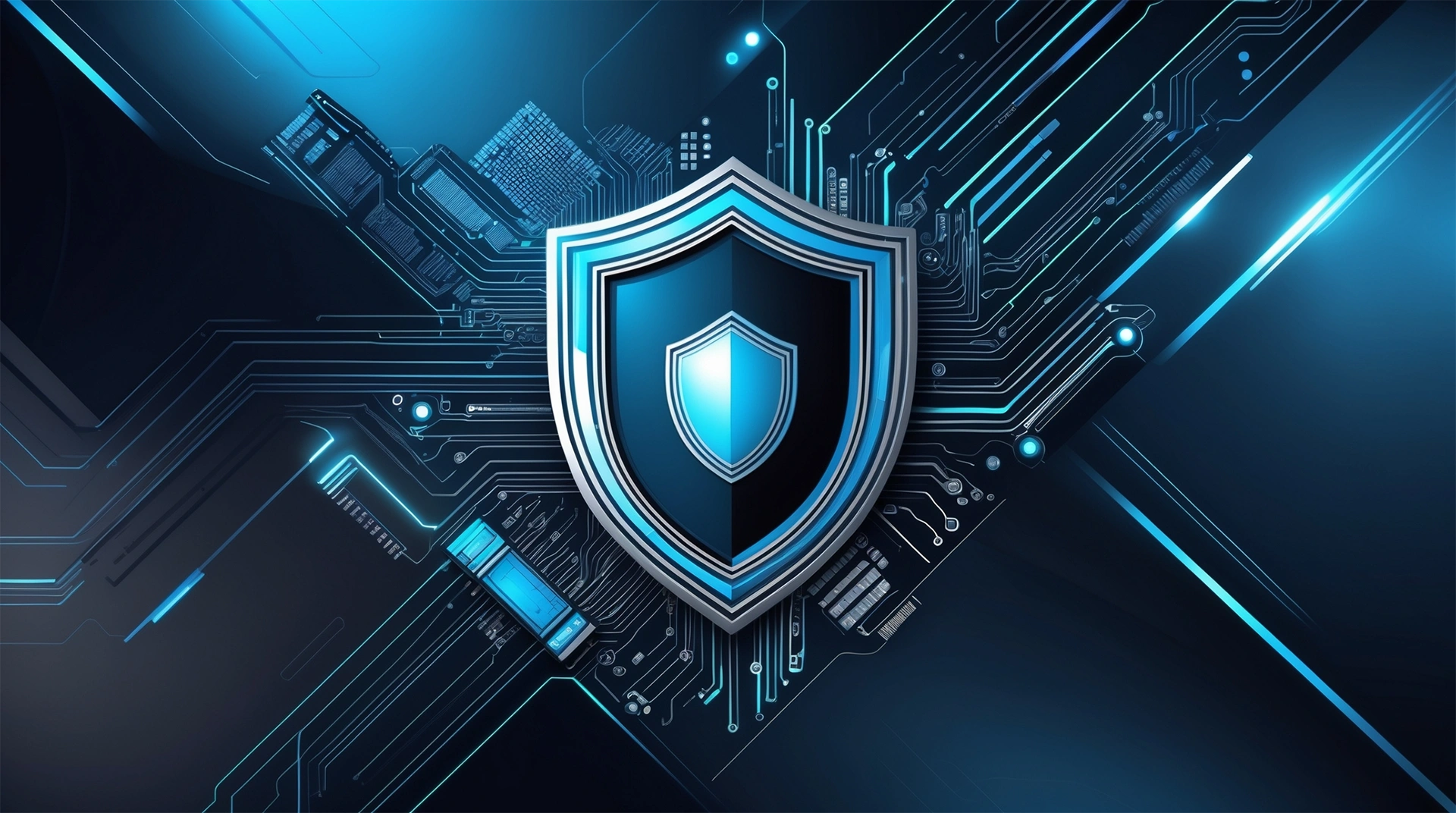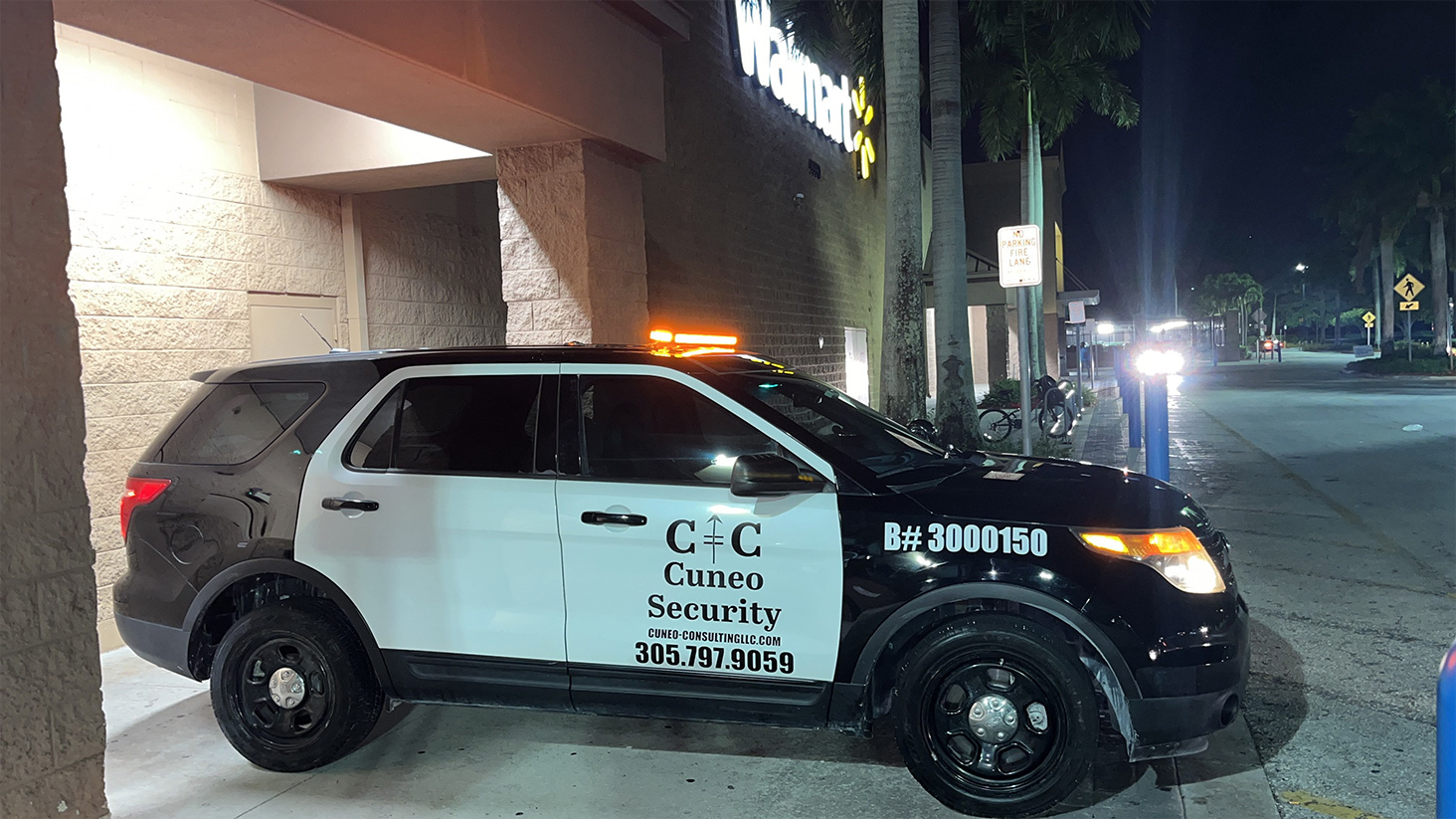Protecting your business from physical threats is critical in today’s volatile environment, and relying solely on digital security isn’t enough. Real resilience comes from deploying on-the-ground security solutions, particularly professional armed and unarmed guard services. This comprehensive guide explores seven essential strategies, including effective perimeter patrols, rapid incident management, strategic risk assessment, regulatory compliance, and employee engagement. Discover how expertly trained security guards actively deter crime, swiftly respond to threats, and uphold regulatory compliance—dramatically reducing liability and maintaining operational continuity. Whether choosing armed officers for high-risk scenarios or unarmed personnel for everyday security, aligning deployment with assessed risks ensures optimal protection. Learn why partnering with a respected provider like Cuneo Consulting, known for its rigorous standards and multi-state licensing, positions your business to stay secure, compliant, and resilient long-term. Enhance physical security for business resilience now—your assets and reputation depend on it.
7 Easy Ways to Enhance Workplace Security Naturally: A Comprehensive Guide by Cuneo Consulting
In today’s dynamic business environment, ensuring workplace security is paramount for fostering a safe and productive environment. “7 Easy Ways to Enhance Workplace Security Naturally” by Cuneo Consulting offers a comprehensive guide tailored for businesses of all sizes. This insightful article delves into cultivating a security-conscious culture, emphasizing the role of leadership commitment and employee engagement in preventing incidents. It explores natural surveillance techniques, such as strategic lighting and open office layouts, to deter potential threats organically. Additionally, the guide highlights effective access control methods, robust employee training programs, and streamlined communication and reporting procedures that empower staff to act as the first line of defense. By integrating thoughtful workplace design and building strong relationships with local law enforcement, businesses can create a holistic security strategy that not only protects assets but also enhances employee morale and trust. Cuneo Consulting provides expert advice and practical solutions to help organizations implement these natural security measures seamlessly.
Revolutionize Retail Security in Tennessee & Oklahoma Now
Retailers in Tennessee and Oklahoma face diverse security challenges, from shoplifting and vandalism to organized retail crime and cyber threats. These issues demand tailored solutions that address the unique dynamics of urban and rural retail environments. Cuneo Consulting specializes in providing comprehensive security strategies, including advanced surveillance systems, employee training programs, and partnerships with local law enforcement. By leveraging cutting-edge technology and fostering community engagement, Cuneo Consulting ensures businesses are protected while fostering a safer retail environment. Through proactive measures and customized approaches, retailers can mitigate risks, enhance customer trust, and improve operational efficiency. Discover how Cuneo Consulting’s expertise empowers retailers to overcome modern security challenges and thrive in a competitive market.
Human Intelligence in Security: Why It’s Crucial for Business Protection
Human intelligence has always played a critical role in maintaining security, both in traditional and modern contexts. As security threats evolve, businesses today face increasingly complex challenges that require more than just automated solutions.
The Ultimate Guide to Armed and Unarmed Security & Private Investigations
In an unpredictable world, the need for effective security is more pressing than ever. Traditional security methods—armed and unarmed security services, combined with private investigative expertise—form the cornerstone of protection for individuals, businesses, and communities. These time-honored approaches leverage the intuition, judgment, and adaptability of skilled professionals, providing a human element that technology alone cannot replicate.
Cuneo Consulting exemplifies the power of traditional security by blending expertise with adaptability to meet the evolving needs of their clients. From safeguarding high-value assets to providing executive protection and conducting discreet investigations, Cuneo Consulting delivers consistent results through a commitment to professionalism, ethics, and excellence.
The integration of human expertise with modern tools ensures a comprehensive security approach that addresses both physical and digital threats, making traditional security more relevant today than ever before. Choose Cuneo Consulting for reliable, customized security solutions.
The Role of Physical Security in Protecting Critical Infrastructure During Storms
The increasing frequency and intensity of storms across the globe pose significant threats to critical infrastructure.
Expanding Horizons: Cuneo Consulting’s Multi-State Security Expertise

Introduction: State Licensed Security
Cuneo Consulting’s Multi-State Security Expertise
The importance of state-licensed security services cannot be overstated. State licensing ensures that security providers adhere to stringent regulatory standards, guaranteeing the quality and reliability of their services. It also provides clients with the confidence that the security measures in place comply with local laws and regulations, ensuring both legal and operational peace of mind.
Cuneo Consulting is proudly licensed to operate in Alabama, Arkansas, Florida, Georgia, Iowa, Louisiana, Kentucky, Mississippi, Missouri, Oklahoma, Tennessee, and Texas with plans to expand to Kansas and other states soon. This wide geographic coverage allows them to offer consistent, high-quality security services to a broad range of clients, from small businesses to large enterprises.
The purpose of this article is to showcase the benefits and expertise of Cuneo Consulting in providing state-licensed security services across multiple states. By highlighting their comprehensive service offerings, successful client engagements, and state-specific expertise, we aim to demonstrate why Cuneo Consulting is the go-to choice for reliable and effective security solutions.
The Importance of State Licensing in Security Services
State licensing is a critical aspect of providing security services, ensuring that companies like Cuneo Consulting meet the stringent regulatory standards required to operate legally and effectively in different regions. Obtaining state licenses involves a comprehensive process where security firms must demonstrate their adherence to various local regulations, standards, and best practices set by state regulatory bodies. This process includes background checks, rigorous training programs, and compliance with specific operational guidelines that vary from state to state.
State licensing is crucial for ensuring compliance with local regulations. Each state has unique security requirements designed to address specific local threats and concerns. For example, states like Florida and Louisiana, which are prone to natural disasters, may have specific regulations for disaster response and emergency management. By adhering to these regulations, security firms ensure they are equipped to handle state-specific challenges effectively. The American Society for Industrial Security (ASIS) emphasizes that compliance with state regulations not only ensures legal operation but also enhances the overall quality and reliability of security services (source: ASIS).

The benefits of state licensing for clients are manifold:

- Assurance of Quality and Professionalism: State licensing ensures that security firms maintain high standards of quality and professionalism. Clients can trust that licensed firms employ well-trained personnel who are equipped with the necessary skills and knowledge to provide effective security solutions. This is especially important in sensitive environments like schools, hospitals, and corporate offices where the stakes are high.
- Enhanced Trust and Credibility: Licensed security firms carry a mark of credibility. Clients can have confidence that these firms have undergone rigorous vetting processes and meet all necessary legal requirements. This trust is crucial for building long-term relationships and ensuring client satisfaction.
- Localized Knowledge and Expertise: State licensing requires firms to have a deep understanding of local laws, regulations, and security concerns. This localized knowledge enables them to tailor their services to meet the specific needs of clients in different regions. For instance, Cuneo Consulting’s expertise in handling security in hurricane-prone areas like Florida and Louisiana demonstrates their ability to provide specialized services that address local risks.

Cuneo Consulting’s Expertise and Services
Overview of Security Services
Cuneo Consulting provides robust physical security solutions, including armed and unarmed security personnel, surveillance systems, and access control measures. These services are essential for safeguarding properties, assets, and individuals from physical threats.
The firm offers specialized executive protection services to high-profile clients, including CEOs, celebrities, and government officials. This involves personal bodyguards, secure transportation, and advanced threat assessment techniques to ensure the safety of clients in various environments.
Conducting thorough risk assessments is a critical component of Cuneo Consulting’s approach. They evaluate potential security threats and vulnerabilities in clients’ operations and develop customized strategies to mitigate these risks. This proactive approach helps prevent security incidents before they occur.
In addition to physical security, Cuneo Consulting provides comprehensive cybersecurity services. This includes network security, data protection, and cybersecurity training for employees. These services are crucial in protecting clients from digital threats such as hacking, phishing, and data breaches (source: Cuneo Consulting Website).

Tailored Services for Different States
Cuneo Consulting: State Licensed Security Professionals
These states face unique security challenges due to natural disasters like hurricanes. Cuneo Consulting provides specialized disaster response plans, ensuring businesses and individuals are prepared and protected during such events.
These regions might have higher risks of crime in certain areas. Cuneo Consulting offers targeted security patrols and surveillance to deter criminal activities and protect properties.
Specialized Training and Certifications
Cuneo Consulting prides itself on having a highly trained and certified team of security professionals. The firm’s personnel undergo rigorous training programs to stay updated with the latest security practices and technologies. Key certifications include:
Recognized globally as a standard of excellence for security management professionals.
Certifies knowledge and experience in threat assessment and integrated physical security systems.
For those involved in cybersecurity, ensuring they have the skills to design, implement, and manage a best-in-class cybersecurity program.
These certifications, from bodies like the Security Industry Association (SIA), ensure that Cuneo Consulting’s team is equipped to handle a wide range of security challenges effectively (source: Industry Standards).

Success Stories and Industry Best Practices
Cuneo Consulting’s state-licensed security services are built upon industry best practices and have been proven effective in various real-world scenarios. Here, we will discuss some general examples and principles that highlight the effectiveness of state-licensed security solutions.

Retail environments often face significant security challenges such as theft, vandalism, and unauthorized access. According to the National Association for Shoplifting Prevention (NASP), retail theft costs businesses billions of dollars annually. Implementing comprehensive security measures such as advanced surveillance, on-site security personnel, and secure access control systems can significantly reduce these incidents. Licensed security providers like Cuneo Consulting ensure these measures comply with state regulations and are tailored to local risks.
 High-profile corporate offices require robust security to protect valuable assets and sensitive information. According to a report by the Ponemon Institute, data breaches cost companies an average of $3.86 million per incident. Combining physical security measures, such as executive protection and access control, with cybersecurity protocols is essential to safeguard against both physical and digital threats. State-licensed security firms are equipped to offer these comprehensive solutions, ensuring compliance with state laws and industry standards.
High-profile corporate offices require robust security to protect valuable assets and sensitive information. According to a report by the Ponemon Institute, data breaches cost companies an average of $3.86 million per incident. Combining physical security measures, such as executive protection and access control, with cybersecurity protocols is essential to safeguard against both physical and digital threats. State-licensed security firms are equipped to offer these comprehensive solutions, ensuring compliance with state laws and industry standards.

Healthcare facilities face unique security challenges, including the need to protect patient data and ensure the safety of vulnerable populations. The Health Insurance Portability and Accountability Act (HIPAA) sets strict standards for protecting patient information. Licensed security providers must adhere to these regulations while implementing measures such as biometric access control, continuous monitoring, and staff training on emergency response procedures. These measures help healthcare facilities maintain a secure environment and comply with federal and state laws.

Residential communities benefit from tailored security solutions to address challenges like unauthorized access and property crimes. According to the FBI’s Uniform Crime Reporting (UCR) Program, property crime rates vary significantly by region, underscoring the need for localized security strategies. Licensed security providers offer services such as perimeter security, regular patrols, and community engagement programs to enhance safety. These measures, when implemented by a state-licensed firm, ensure compliance with local regulations and effectively address specific community risks.
Conclusion
These examples highlight the importance of state-licensed security services in various sectors. By adhering to industry best practices and ensuring compliance with state and federal regulations, licensed security providers like Cuneo Consulting deliver effective and reliable security solutions tailored to the unique needs of their clients.
References:
- National Association for Shoplifting Prevention. Retrieved from NASP.
- Ponemon Institute – Cost of a Data Breach Report. Retrieved from IBM Security.
- U.S. Department of Health & Human Services – HIPAA. Retrieved from HHS.
- FBI – Uniform Crime Reporting Program. Retrieved from FBI.

State-Specific Challenges and Solutions
Unique Security Challenges by State

- Florida is highly susceptible to hurricanes and tropical storms, which pose significant security challenges. The need for robust disaster response and emergency management plans is critical for businesses and residential areas alike. Security measures must account for potential evacuations, looting, and infrastructure damage.
- Source: Florida Today – Hurricane Preparedness
- Similar to Florida, Louisiana experiences frequent flooding and severe weather conditions. The state’s unique geography, with many areas below sea level, increases the risk of extensive water damage and associated security threats, such as property crimes during evacuations.
- Source: NOLA.com – Flood Risks
- Arkansas faces the threat of tornadoes and severe storms, requiring specialized security protocols to protect lives and property. Tornado preparedness involves secure shelter plans, rapid response teams, and post-disaster recovery efforts.
- Source: Arkansas Democrat-Gazette – Tornado Preparedness
- Oklahoma’s economy is heavily influenced by the oil and gas industry, which brings unique security challenges, including the protection of critical infrastructure and addressing environmental risks. Ensuring the security of these facilities involves advanced surveillance, access control, and emergency response strategies.
- Source: The Oklahoman – Industry Risks
Tailored Solutions by Cuneo Consulting
Cuneo Consulting State Licensed Security Solutions
In states like Florida and Louisiana, Cuneo Consulting develops comprehensive disaster response plans that include:
- Evacuation Protocols: Clear procedures for safe evacuations during hurricanes or severe weather.
- Emergency Communication Systems: Robust communication channels to keep clients informed and coordinated.
- Post-Disaster Security: Enhanced security measures to protect properties from looting and vandalism during recovery phases.
Cuneo Consulting provides specialized training for security personnel to handle local threats effectively. This includes:
- Natural Disaster Training: Preparing security teams to respond to hurricanes, floods, and tornadoes with specific protocols and equipment.
- Industry-Specific Training: For states like Oklahoma, security teams receive training focused on protecting oil and gas infrastructure, including handling environmental hazards and potential sabotage.
The adaptability and flexibility of Cuneo Consulting’s security services are evident in their ability to tailor solutions to the unique needs of each state. Their comprehensive approach includes:
- Local Expertise: Leveraging knowledge of local regulations, weather patterns, and industry risks to design effective security plans.
- Advanced Technology: Utilizing cutting-edge technology such as real-time surveillance, biometric access control, and cybersecurity measures to provide multi-layered protection.
- Client-Centric Approach: Working closely with clients to understand their specific security concerns and customize solutions that address their unique requirements.
By offering state-specific security solutions, Cuneo Consulting ensures that clients receive the highest level of protection tailored to their local environment and industry-specific challenges.

Why Choose Cuneo Consulting?

Choosing Cuneo Consulting for your security needs provides several distinct advantages. Their comprehensive range of services, commitment to client safety and satisfaction, and the benefits of working with a multi-state licensed security provider make them an ideal choice for ensuring robust security measures.
Comprehensive Range of Services
Cuneo Consulting offers a wide array of security services designed to meet diverse needs across various industries and regions. Their services include:
Providing on-site security personnel, advanced surveillance systems, and access control to safeguard properties and assets.
Offering personalized security solutions for high-profile individuals, including secure transportation and close protection.
Conducting thorough evaluations to identify potential security threats and developing customized strategies to mitigate these risks.
Implementing robust cybersecurity measures to protect sensitive information and prevent digital threats.
These services are delivered by highly trained professionals who adhere to stringent state licensing requirements, ensuring compliance with local regulations and standards.

Commitment to Client Safety and Satisfaction
Prioritizing client safety and satisfaction
Providing continuous support and updates to ensure that security measures remain effective and up-to-date. This includes regular check-ins, updates on emerging threats, and adjustments to security plans as needed.
Tailoring security solutions to meet the specific needs and concerns of each client. This personalized approach ensures that clients receive the most effective protection possible.
Utilizing cutting-edge technology, such as real-time surveillance, and cybersecurity tools, to provide comprehensive security solutions.
By focusing on these areas, Cuneo Consulting ensures that their clients receive high-quality, reliable security services that are tailored to their unique needs.

Advantages of Working with a Multi-State Licensed Security Provider
Cuneo Consulting Multi-State Licensed Security Professionals
By maintaining high standards of service and adhering to state-specific regulations, Cuneo Consulting ensures consistent quality across all regions they serve. This consistency is crucial for clients with operations in multiple states, as it provides a uniform level of security.
Cuneo Consulting’s centralized management structure allows for efficient coordination and oversight of security operations across different states. This centralization enhances communication, resource allocation, and overall effectiveness of security measures.
With licenses in multiple states, Cuneo Consulting possesses in-depth knowledge of local security challenges, regulations, and best practices. This localized expertise enables them to develop tailored security solutions that address the specific needs of clients in different regions.
These advantages highlight the value of choosing a security provider that combines multi-state licensing with a commitment to excellence and client-focused service.
Conclusion
Cuneo Consulting stands out as a premier provider of state-licensed security services, offering a comprehensive range of solutions, a commitment to client safety and satisfaction, and the benefits of multi-state licensing. By choosing Cuneo Consulting, clients can trust that they are receiving high-quality, reliable security services tailored to their unique needs.

Future Trends in Security Services
Emerging Trends in the Security Industry
- The adoption of advanced technologies such as AI, machine learning, and the Internet of Things (IoT) is transforming the security landscape. These technologies enable more sophisticated threat detection, real-time monitoring, and automated responses to security incidents. AI, in particular, is being used to analyze vast amounts of data to identify patterns and predict potential threats before they occur (source: Gartner).
- Example: AI-powered surveillance systems that can detect unusual activities and alert security personnel immediately.
- Cyber threats are becoming more advanced and frequent, posing significant risks to businesses and individuals. The rise of ransomware, phishing attacks, and data breaches requires robust cybersecurity measures. The integration of cybersecurity with physical security is becoming increasingly important to provide comprehensive protection (source: Ponemon Institute).
- Example: Multi-layered security strategies that include both physical security measures and cybersecurity protocols.
- AI is revolutionizing the security industry by enhancing the capabilities of security systems. AI-driven analytics can process and interpret data more quickly and accurately than humans, leading to faster and more effective responses to security incidents. AI is also being used in biometric systems, facial recognition, and predictive analytics to enhance security measures (source: Security Magazine).
- Example: Biometric access control systems that use facial recognition to allow or deny entry based on AI analysis.

How Cuneo Consulting is Staying Ahead of These Trends
Investment In Technology
- To stay ahead of emerging trends, Cuneo Consulting emphasizes the importance of ongoing training for their security personnel. Regular training sessions ensure that their team is knowledgeable about the latest security technologies, threat detection techniques, and best practices in both physical and cybersecurity. This commitment to continuous learning ensures that Cuneo Consulting’s staff is always prepared to handle the latest security challenges (source: Security Industry Association (SIA)).
- Cuneo Consulting is dedicated to developing innovative security solutions that address the evolving needs of their clients. This includes creating customized security plans that integrate both physical and cybersecurity measures, as well as leveraging AI and machine learning to provide predictive and proactive security strategies (source: Security Magazine).

Importance of Staying Current with Industry Developments
Cuneo Consulting: Keeping up with the latest trends & advancements
- Implementing the latest technologies and best practices ensures that clients receive the highest quality security services. This leads to improved safety and satisfaction for clients.
- Understanding new and emerging threats allows security firms to develop strategies to mitigate these risks proactively. This proactive approach helps prevent security incidents before they occur.
- Keeping up with industry developments ensures that security firms remain compliant with evolving regulations and standards. This compliance is crucial for maintaining credibility and trust with clients.

Conclusion
Secure Your Business with State-Licensed Experts
Choosing a state-licensed security provider like Cuneo Consulting is crucial for ensuring effective and reliable protection. Their commitment to client safety and satisfaction, combined with their expertise in leveraging advanced technology and staying ahead of industry trends, makes them a trusted partner in security. By working with Cuneo Consulting, clients can benefit from consistent, high-quality security services tailored to their specific needs and regional challenges.
For more information or to request a consultation, contact Cuneo Consulting today. Visit their website at Cuneo Consulting to learn how they can help protect your assets and ensure your peace of mind.

References
- American Society for Industrial Security (ASIS). Retrieved from ASIS Online.
- Gartner. (2023). Retrieved from https://www.gartner.com/en.
- Ponemon Institute – Cost of a Data Breach Report. (2023). Retrieved from https://www.ibm.com/security/data-breach.
- Security Magazine. (2023). Retrieved from https://www.securitymagazine.com/.
- Cuneo Consulting Services. (2023). Retrieved from https://cuneo.consulting/services.
- Security Industry Association (SIA). (2023). Retrieved from https://www.securityindustry.org/.
- Florida Today – Hurricane Preparedness. (2023). Retrieved from https://www.floridatoday.com/.
- NOLA.com – Flood Risks. (2023). Retrieved from https://www.nola.com/.
- Arkansas Democrat-Gazette – Tornado Preparedness. (2023). Retrieved from https://www.arkansasonline.com/.
- The Oklahoman – Industry Risks. (2023). Retrieved from https://www.oklahoman.com/.
- National Association for Shoplifting Prevention. (2023). Retrieved from https://www.shopliftingprevention.org/.
- U.S. Department of Health & Human Services – HIPAA. (2023). Retrieved from https://www.hhs.gov/hipaa/index.html.
- FBI – Uniform Crime Reporting Program. (2023). Retrieved from https://ucr.fbi.gov/.
Cuneo Consulting State Licensed Security
Enhancing Executive Protection with Advanced Cybersecurity Measures: Addressing AI-Based Attacks, Human Risk Management, and Intangible Asset Protection
I. Introduction
Opening Statement
Thesis Statement
Video Title: Evaluating CISA’s Federal Civilian Executive Branch Cybersecurity Programs
This video provides an in-depth analysis of cybersecurity programs aimed at protecting federal civilian executive branches. It discusses the challenges and strategies involved in securing these critical infrastructures and highlights the importance of cybersecurity in executive protection.

II. The Rise of AI-Based Attacks and Deepfakes
Overview of AI-Based Cyber Threats
Deepfake Technology
II. The Rise of AI-Based Attacks and Deepfakes
Overview of AI-Based Cyber Threats
Artificial intelligence (AI) has revolutionized the cybersecurity landscape, acting as both a powerful defense mechanism and a sophisticated tool for cybercriminals. On one hand, AI aids in the detection and mitigation of cyber threats by analyzing vast amounts of data to identify patterns and anomalies that signify potential attacks. On the other hand, cybercriminals are leveraging AI to enhance the sophistication and efficacy of their attacks, making them harder to detect and counter.
AI-driven cyber threats encompass a wide range of tactics. One prominent example is AI-generated phishing schemes. These attacks use AI to create highly convincing phishing emails that mimic legitimate communications, often fooling even the most cautious recipients. By analyzing the writing style, formatting, and content of genuine emails, AI can produce phishing emails that are nearly indistinguishable from the real thing, increasing the likelihood of success for the attackers (source: BankInfoSecurity).
Another significant threat is the use of AI in developing advanced malware. AI can be used to create malware that adapts and evolves to bypass security measures, making it more resilient and difficult to neutralize. These AI-driven malware variants can change their code and behavior in response to detection attempts, effectively evading traditional cybersecurity defenses.
Deepfake Technology
Deepfake technology represents one of the most alarming advancements in cybercrime. Utilizing deep learning algorithms, cybercriminals can create hyper-realistic fake videos and audio recordings that convincingly replicate the appearance and voice of real individuals. This technology poses a significant threat to executive protection, as deepfakes can be used to impersonate executives, leading to unauthorized financial transactions, the spread of misinformation, or other damaging actions.
For instance, a deepfake video could be used to impersonate a CEO giving false instructions to employees or stakeholders, resulting in severe financial and reputational damage. Similarly, deepfake audio recordings can be employed to conduct social engineering attacks, such as convincing an executive’s assistant to transfer funds or disclose sensitive information (source: Media Sonar Technologies).
The implications of deepfake technology extend beyond immediate financial risks. The ability to create convincing fake content undermines trust in digital communications and can have long-term consequences for an organization’s reputation and operational integrity. Traditional security measures, which primarily focus on physical and digital barriers, are often inadequate against the nuanced and evolving nature of deepfake threats.
III. The Need for Robust Human Risk Management Practices
Human Risk Management Defined
Implementing Effective Human Risk Management
Continuous monitoring of employee behavior is essential to detect anomalies that might signify security risks. This involves using advanced analytics and AI to monitor user activities, access patterns, and communication for signs of insider threats or inadvertent security breaches. It’s important to balance this monitoring with privacy concerns to maintain employee trust (source: Media Sonar Technologies).
Once high-risk employees are identified, organizations should implement targeted mitigation programs. These programs can include additional training, stricter access controls, and regular audits. Security training should be tailored to address the specific risks associated with each employee’s role and responsibilities.
Regular and continuous cybersecurity education and training are vital for maintaining a high level of security awareness among employees. Training programs should cover the latest cybersecurity threats, best practices for data protection, and the importance of reporting suspicious activities. This helps in creating a security-conscious culture within the organization (source: BankInfoSecurity).
Beyond technical measures, fostering a culture of cybersecurity within the organization is critical. This involves encouraging employees to take ownership of their security behaviors, promoting transparency about security policies, and ensuring that security is integrated into the organization’s values and practices (source: Media Sonar Technologies).

IV. Strategies for Monitoring and Mitigating Online Risks Posed by Employees' Behaviors
Monitoring Techniques
UAM tools track user activities across various systems, logging actions such as file access, data transfers, and login attempts. These tools provide valuable insights into normal and abnormal behavior patterns, helping to identify potential insider threats before they can cause harm (source: Media Sonar Technologies).
Behavioral analytics use machine learning algorithms to analyze user behavior and detect anomalies that may indicate malicious activity. By establishing a baseline of normal behavior for each user, these systems can flag deviations that warrant further investigation (source: BankInfoSecurity).
Real-time threat detection systems continuously scan for signs of suspicious activity, such as unusual login times, access to sensitive files, or attempts to bypass security controls. These systems can trigger alerts and automated responses to mitigate threats immediately (source: Media Sonar Technologies).
DLP solutions monitor and control the flow of sensitive information within and outside the organization. They can prevent unauthorized data transfers and ensure compliance with data protection regulations, reducing the risk of data breaches (source: BankInfoSecurity).
Mitigation Tactics
Once potential risks are identified through monitoring, organizations must implement effective mitigation tactics to address and neutralize these threats. Key strategies include:
Comprehensive incident response plans outline the steps to be taken when a security breach occurs. These plans should include clear procedures for identifying, containing, eradicating, and recovering from security incidents. Regularly testing and updating these plans ensures they remain effective and relevant (source: Media Sonar Technologies).
Implementing stringent access controls helps limit employees’ access to only the information and systems necessary for their roles. This reduces the potential attack surface and minimizes the risk of unauthorized access. Techniques such as multi-factor authentication (MFA) and role-based access control (RBAC) are essential components of this strategy (source: BankInfoSecurity).
Ongoing security awareness training for employees helps reinforce the importance of cybersecurity best practices. Training programs should be tailored to address current threats and provide practical guidance on recognizing and responding to phishing attempts, social engineering, and other common attack vectors (source: BankInfoSecurity).
Conducting regular security audits and reviews helps ensure that security policies and procedures are being followed. These audits can identify gaps in security controls and provide opportunities for continuous improvement. External audits by third-party experts can also offer valuable insights and recommendations (source: Media Sonar Technologies).
Proactive threat hunting involves actively searching for signs of potential security threats that may have bypassed automated defenses. This approach requires skilled cybersecurity professionals who can analyze system logs, network traffic, and other data to uncover hidden threats and respond swiftly (source: BankInfoSecurity).
V. Real-World Examples of Cyber Threats and Successful Mitigation Tactics
Case Studies
In a notable incident, a global financial firm fell victim to a sophisticated phishing attack that targeted its executives. The attackers used AI to craft emails that closely mimicked internal communications, tricking executives into clicking on malicious links. The breach led to significant financial and reputational damage. The firm’s incident response team quickly implemented containment measures, conducted a thorough forensic investigation, and improved their email security protocols to prevent future attacks (source: BankInfoSecurity).
A multinational corporation experienced a deepfake attack where cybercriminals created a video of the CEO giving fraudulent instructions to the finance department. The deepfake was so convincing that it led to the unauthorized transfer of millions of dollars. Upon discovering the fraud, the company enhanced its verification processes for sensitive communications and invested in deepfake detection technology to safeguard against future threats (source: Media Sonar Technologies).
A healthcare provider was targeted by a ransomware attack that encrypted critical patient data. The attackers demanded a hefty ransom for the decryption key. The provider’s cybersecurity team, having prepared for such incidents, executed their incident response plan, involving data backups and coordination with law enforcement. The attack was mitigated without paying the ransom, and the provider implemented stronger endpoint protection and employee training programs to reduce the risk of future attacks (source: BankInfoSecurity).
Industry Insights
Leading cybersecurity experts advocate for proactive threat hunting as a critical strategy in mitigating advanced threats. Proactive threat hunting involves continuously searching for indicators of compromise within an organization’s network before any signs of a breach become apparent. This approach has been shown to significantly reduce the dwell time of attackers, limiting the damage they can cause (source: BankInfoSecurity).
Integrating cyber and physical security teams is essential for a holistic security approach. This convergence enables better communication and coordination, allowing for a more comprehensive understanding of potential threats. For instance, an executive protection team that collaborates with IT security can quickly address both physical and digital threats to an executive during international travel (source: Media Sonar Technologies).
Successful organizations implement robust human risk management programs that include regular employee training, behavior monitoring, and continuous improvement of security policies. By identifying high-risk individuals and tailoring security measures to their roles, companies can significantly reduce the likelihood of insider threats and inadvertent security breaches (source: BankInfoSecurity).
VI. Protecting Intangible Assets: Data Privacy and Brand Reputation
The Shift Towards Protecting Intangible Assets
- Data breaches can lead to the unauthorized access and exposure of sensitive personal and corporate information. Protecting data privacy involves implementing stringent data security measures, such as encryption, access controls, and regular security audits. Additionally, organizations must ensure compliance with data protection regulations like GDPR and CCPA, which mandate specific standards for data handling and breach notification (source: BankInfoSecurity).
- Example: A major corporation faced a data breach that exposed the personal information of its executives, leading to identity theft and financial loss. In response, the company enhanced its data encryption protocols and conducted comprehensive training programs to ensure all employees understood the importance of data privacy and security.
- The reputation of an organization and its executives is one of its most valuable assets. Cyber threats such as deepfakes, phishing attacks, and social media impersonations can severely damage an executive’s or a company’s reputation. Protecting brand reputation requires proactive monitoring of online content and swift responses to any threats or misinformation. Public relations strategies should include plans for addressing and mitigating the impact of cyber incidents on the organization’s reputation (source: Media Sonar Technologies).
- Example: An executive was targeted by a deepfake video that portrayed them making controversial statements. The organization quickly identified the deepfake, engaged with digital forensics experts to prove its inauthenticity, and launched a public relations campaign to restore the executive’s reputation.
Best Practices for Protecting Intangible Assets
Develop and enforce comprehensive cybersecurity policies that address the protection of both data privacy and brand reputation. These policies should outline procedures for data handling, breach response, and communication strategies in the event of a cyber incident (source: BankInfoSecurity).
Conduct regular risk assessments to identify potential vulnerabilities in the organization’s data privacy and reputation management practices. These assessments should include both internal audits and external evaluations by cybersecurity experts (source: Media Sonar Technologies).
Implement advanced monitoring tools to continuously scan for potential threats to data privacy and brand reputation. This includes monitoring social media, news outlets, and other online platforms for signs of cyberattacks or misinformation campaigns (source: BankInfoSecurity).
Develop and maintain a detailed incident response plan that includes specific steps for addressing data breaches and reputational attacks. This plan should involve coordination between cybersecurity teams, public relations, and legal departments to ensure a swift and effective response (source: Media Sonar Technologies).
Regularly train employees on best practices for data privacy and the importance of protecting the organization’s reputation. Training programs should cover topics such as recognizing phishing attempts, safe data handling practices, and the appropriate response to cyber incidents (source: BankInfoSecurity).
VII. Conclusion
Summary of Key Points
- AI-driven cyber threats, including sophisticated phishing schemes and adaptive malware, are increasingly challenging traditional security measures.
- Deepfake technology poses significant risks by enabling realistic impersonations of executives, which can lead to severe financial and reputational damage (sources: BankInfoSecurity, Media Sonar Technologies).
- Implementing robust human risk management practices is essential for identifying and mitigating risks posed by employees’ behaviors.
- Continuous monitoring, targeted security training, and fostering a culture of cybersecurity are vital components of effective human risk management (source: BankInfoSecurity).
- Advanced monitoring techniques, such as user activity monitoring and behavioral analytics, help detect potential threats in real-time.
- Proactive mitigation tactics, including comprehensive incident response plans and stringent access controls, are crucial for addressing identified risks (source: Media Sonar Technologies).
- The protection of data privacy and brand reputation is a critical aspect of modern executive protection.
- Best practices include developing comprehensive cybersecurity policies, conducting regular risk assessments, and implementing proactive monitoring and incident response strategies (sources: BankInfoSecurity, Media Sonar Technologies).
Final Thoughts
The continuous evolution of cyber threats demands that organizations remain vigilant and adaptable in their security strategies. By integrating advanced cybersecurity measures into executive protection plans, companies can better safeguard their executives and organizational assets from both digital and physical threats. The importance of ongoing education, collaboration between cyber and physical security teams, and proactive threat detection cannot be overstated.
Organizations must stay informed about the latest cybersecurity trends and adopt a proactive approach to protect their most valuable assets. In doing so, they will not only enhance their security posture but also build trust and resilience in an increasingly uncertain digital landscape.
VIII. References
Keywords and Sources:
- BankInfoSecurity. “Cybersecurity Trends to Watch in 2024.” BankInfoSecurity.
- Media Sonar Technologies. “Recent Trends and Market Demand in Executive Protection and Private Security Services.” Media Sonar.
- Security Industry Association. “Security Megatrends: The 2024 Vision for the Security Industry.” Security Industry Association.
Secure Your Future with Level AI
Navigating Modern Security Challenges: The Crucial Role of Physical and Surveillance Security Solutions
In the evolving landscape of global security, the emphasis on comprehensive physical and surveillance solutions has never been more critical.
Modern Strategies Against Retail Theft: Balancing Security and Community Welfare in Georgia
From California’s bustling urban centers to the corridors of Capitol Hill, the issue of retail theft has surged into the national spotlight, casting a long shadow over the discourse on community safety and economic stability. This surge in concern has been accompanied by a flurry of legislative actions aimed at curbing this perceived crisis, with states rapidly amending their criminal statutes to impose harsher penalties on retail theft. Yet, beneath the surface of this legislative fervor lies a complex narrative, one that Cuneo Consulting, a Georgia-based leader in bespoke security solutions, seeks to address with precision and informed strategy.
The prevailing narrative, fueled by high-profile cases and corporate testimonials, suggests an epidemic of shoplifting that is forcing retailers to shutter their doors and rethink their presence in urban landscapes. Media outlets relay stories of dramatic heists and day-to-day losses, painting a grim picture of retail environments under siege. This portrayal has prompted a punitive shift in policy-making, where the response has often leaned towards criminalization rather than addressing the underlying socio-economic factors that contribute to retail theft.
However, a closer examination of the data suggests a disconnect between the sensational stories and the statistical realities. Reports such as the recent study by the Brookings Institution reveal that while retail theft is indeed a concern, its actual scale and the effectiveness of current countermeasures are often misrepresented. For instance, the study highlights that in several major cities, instances of reported shoplifting have not only plateaued but, in some cases, have significantly decreased. This raises critical questions about the basis of the current crackdown and the efficacy of measures that could lead to unintended consequences for the communities they aim to protect.
At the heart of Cuneo Consulting’s approach is a commitment to leveraging cutting-edge technology and strategic planning to enhance security without compromising the integrity of community relations. As Georgia grapples with these national trends, the need for solutions that are both innovative and grounded in reality becomes ever more critical. Cuneo Consulting’s expertise in deploying advanced surveillance systems, data analytics, and comprehensive security strategies positions them as an essential partner for retailers looking to navigate the challenging landscape of modern retail security.
As we delve deeper into the implications of retail theft and the policies crafted to combat it, it becomes evident that a balanced approach, one that considers both the data and the human impact of security strategies, is essential. This introduction sets the stage for a discussion on how businesses, policymakers, and security professionals can collaborate to develop measures that protect assets while fostering a secure, inclusive community environment. Through this exploration, Cuneo Consulting aims to not only address the immediate concerns of retail theft but also contribute to a sustainable model of security that respects and enhances the fabric of the communities it serves.
Understanding Retail Theft Today
Modern Strategies Against Retail Theft: SECTION 1
Firstly, it’s crucial to address the reliability of the data surrounding retail theft. According to recent analyses, the perception of an escalating crisis in shoplifting and retail theft often stems from anecdotal evidence rather than from robust data sets. Retail theft is not uniformly reported across jurisdictions, and it lacks a consistent legal or definitional framework, which complicates efforts to track and analyze it effectively. For instance, the term “organized retail crime” varies significantly in meaning and legal weight from one state to another, which can skew public perception and policy responses.
The Brookings Institution’s report highlights this discrepancy by noting that retail theft rates have not universally increased across the board. In fact, in a study spanning several major cities over recent years, instances of shoplifting have remained stable or even decreased. For example, out of 24 cities that consistently report shoplifting data, 17 have seen a decrease in incidents. Such data challenges the narrative that retail theft is universally on the rise and suggests that localized factors and reporting methodologies play significant roles in shaping perceptions.
In Georgia, where Cuneo Consulting is a key player in the security industry, the situation reflects these broader trends. Local data indicates that while certain areas may experience fluctuations in retail theft, there is no statewide crisis of escalating shoplifting rates. This understanding is crucial for businesses and policymakers alike, as it emphasizes the need for precise, localized responses rather than broad, punitive measures.
Furthermore, media reports often amplify isolated incidents of theft, which can lead to a distorted view of the overall risk landscape. This sensationalism not only fuels public fear but also drives a demand for hasty and often disproportionately severe responses from lawmakers and law enforcement. Here, Cuneo Consulting’s approach offers a contrast, focusing instead on comprehensive security assessments that integrate advanced technology and strategic planning to mitigate risks effectively and proportionately.
Cuneo Consulting advocates for an approach that combines state-of-the-art surveillance technologies, data analytics, and in-depth industry knowledge to develop security solutions that are both effective and respectful of the communities they serve. By analyzing patterns of retail theft and adapting security measures accordingly, they help ensure that interventions are not only effective but also sustainable and community-friendly.
In summary, understanding the current landscape of retail theft requires a departure from generalized narratives to embrace a more data-focused perspective. For Georgia’s retailers and policymakers, this means recognizing the variability of theft incidents and responding with tailored strategies that address specific needs and conditions. As such, Cuneo Consulting’s role extends beyond providing security solutions; it involves educating stakeholders about the real dynamics of retail theft and the most effective strategies for prevention and response. This approach not only enhances security but also supports the broader goal of maintaining vibrant, safe commercial environments across Georgia.
The Impact of Misinformation
Modern Strategies Against Retail Theft: SECTION 2
Misinformation about retail theft frequently stems from sensational media coverage and anecdotal reports, which can lead to a distorted view of the scale and nature of the problem. For instance, high-profile cases of theft are often presented as indicative of broader trends, despite data suggesting otherwise. This type of reporting can incite public fear and urgency, pressuring legislators to act swiftly rather than thoughtfully. The consequence is the implementation of policies that may prioritize punitive measures over more effective, preventative strategies.
In Georgia, as in many other regions, this has led to a legislative environment where the responses to retail theft might not always be proportional to the actual risks or based on evidence of what effectively deters crime. For example, stringent laws increasing penalties for minor thefts may not decrease theft occurrences but could instead exacerbate issues like prison overcrowding and hinder reintegration efforts for non-violent offenders, ultimately harming community welfare more than they protect it.
Cuneo Consulting, with its emphasis on strategic planning and advanced security technologies, advocates for a more informed approach. By leveraging comprehensive data analytics and maintaining an informed perspective on crime trends, the company helps ensure that security measures are not only responsive but also responsible. This approach stands in stark contrast to the knee-jerk fortification seen in some policies, which can alienate the community and create an atmosphere of mistrust between businesses and the public.
Moreover, the perpetuation of misinformation about retail theft can lead to significant economic repercussions. When businesses and consumers operate under a heightened fear of crime, it can alter shopping behaviors and deter investment in areas perceived as high-risk. This is particularly detrimental for small businesses and can stifle the growth and revitalization of commercial districts. It is crucial, therefore, that public discourse and policies are shaped by accurate, comprehensive crime data and analysis.
The challenge, then, for policymakers and the security sector is to cultivate a dialogue based on transparency and facts. Cuneo Consulting’s role in this process involves not only implementing effective security solutions but also participating in community and industry discussions to advocate for policies that reflect the true nature of retail theft challenges. By doing so, they contribute to a more stable and secure retail environment that supports both economic vitality and community relations.
In conclusion, the impact of misinformation on the perception and management of retail theft is profound and far-reaching. For Georgia, the path forward lies in embracing data-driven insights and rejecting sensational narratives. Organizations like Cuneo Consulting are pivotal in this respect, offering both the technology and the expertise necessary to guide a balanced approach to retail security—one that mitigates risks while fostering a supportive community framework.
As communities and policymakers wrestle with the complexities of retail theft, examining case studies from different states can provide valuable insights into effective strategies and policy responses. This section discusses several key examples from across the United States, highlighting their outcomes and implications for future policy-making, particularly in the context of Georgia’s retail environment.
California's Proposition 47
Case Study 1
Florida's Enhanced Penalties for Organized Retail Theft
Case Study 2
New York's Multi-Faceted Approach
Case Study 3
Implications for Georgia
These case studies provide several lessons for Georgia. Firstly, the California example warns of the potential unintended consequences of reducing penalties without adequate support systems in place. Meanwhile, Florida’s approach highlights the benefits and risks of imposing stricter penalties. New York’s model offers a balanced perspective, suggesting that combining law enforcement with community engagement and support mechanisms can effectively reduce theft while fostering positive community relations.
For Georgia, adopting a policy that combines these elements could be beneficial. This might include:
- Enhanced Penalties and Enforcement: Implementing stricter penalties for organized retail theft, ensuring they are targeted at deterring organized crime without ensnaring low-level offenders.
- Community and Economic Development: Investing in community programs that address the root causes of theft, such as economic disenfranchisement and lack of access to essential services.
- Technology and Training: Utilizing advanced security technologies, like those provided by Cuneo Consulting, to enhance the capabilities of retail businesses to prevent theft effectively.
- Public-Private Partnerships: Encouraging collaborations between law enforcement, businesses, and security experts to develop tailored strategies that address specific local challenges.
By considering the outcomes of these varied approaches, Georgia can formulate a comprehensive strategy that not only curtails retail theft effectively but also enhances the overall welfare of its communities, creating a safer and more prosperous environment for all stakeholders.
Evidence-Based Solutions
Modern Strategies Against Retail Theft: SECTION 4
Enhancing Consumer Protection and Regulatory Oversight
One of the most impactful strategies involves strengthening consumer protection and increasing regulatory oversight of online marketplaces. This approach targets the resale of stolen goods, which has become a significant issue with the rise of e-commerce platforms where stolen items are often sold anonymously. By holding online marketplaces accountable and ensuring that they implement stringent seller verification processes, policymakers can significantly reduce the avenues available for criminals to profit from stolen merchandise. For instance, requiring detailed documentation of item origin and seller identity can deter the sale of stolen goods.
In Georgia, where digital commerce continues to grow, legislation similar to California’s law requiring online marketplaces to display verified seller information could be considered. Cuneo Consulting can support this initiative by providing technological solutions that help businesses comply with new regulations, such as advanced tracking systems and analytics tools that verify the authenticity and origin of goods sold online.
Supporting and Training Retail Workers
Another evidence-based solution involves investing in the workforce that handles day-to-day retail operations. Proper training and adequate compensation for retail workers are crucial in preventing theft. Well-trained employees are more likely to recognize suspicious behavior, understand the proper protocols for handling theft, and feel valued enough to be invested in the security of their workplace. Policies that support worker training programs, fair wages, and benefits can reduce employee turnover, which is often linked to higher theft rates.
Georgia’s retail sector could benefit from state-supported initiatives that provide funding for security training programs. Additionally, Cuneo Consulting could develop specialized training modules tailored to different retail environments, enhancing employees’ skills in surveillance, emergency response, and customer interaction, which are all vital for preventing theft.
Implementing Community-Based Preventative Measures
Addressing the root causes of retail theft often involves community-based preventive measures. This includes expanding access to social services, such as job training, education, and mental health support, which tackle the socio-economic conditions that lead to crime. Research has consistently shown that enhancing social support networks and community resources can lead to a significant reduction in theft and other forms of crime.
In Georgia, public-private partnerships could be formed to fund community centers and social programs aimed at at-risk populations. Cuneo Consulting can contribute to these efforts by participating in community outreach programs and providing expertise on integrating security measures with community development initiatives.
Leveraging Technology for Predictive Policing
Finally, leveraging advanced technology to predict and prevent theft is an increasingly popular solution. Predictive policing tools use data analytics to identify patterns and predict future incidents, allowing law enforcement and retailers to allocate resources more effectively. These tools can be integrated into existing security systems, providing a proactive approach to theft prevention.
Cuneo Consulting is well-positioned to lead the integration of predictive policing technologies in Georgia’s retail sector. By using data analytics to identify potential theft hotspots and times, they can help retailers implement targeted security measures that prevent crime before it occurs, without the need for invasive tactics that might alienate customers.
By adopting these evidence-based solutions, Georgia can not only reduce retail theft but also strengthen the overall resilience of its retail sector. With the support of Cuneo Consulting’s expertise, retailers can implement sophisticated, humane, and effective strategies that protect their goods and foster a safer community.
Role of Security Technology
Modern Strategies Against Retail Theft: SECTION 5
Advanced Surveillance Systems
One of the foundational elements of modern retail security is advanced surveillance technology. High-definition CCTV cameras, equipped with facial recognition capabilities and real-time monitoring, provide a comprehensive view of retail spaces, deterring potential thieves and aiding in the identification and prosecution of offenders. Cuneo Consulting specializes in the installation and management of such systems, ensuring that coverage is both thorough and compliant with legal guidelines for privacy and data protection.
Moreover, modern surveillance systems integrated with AI technology can analyze video feeds to detect unusual behaviors or patterns that may indicate theft or other security threats. For instance, systems can alert security personnel about unattended bags, loitering individuals, or unusual congregation points, enabling proactive management of potential threats before they escalate.
Data Analytics for Predictive Security
Utilizing big data and analytics transforms traditional security systems into predictive tools that can foresee potential incidents based on historical data and real-time inputs. For retail clients in Georgia, Cuneo Consulting implements data analytics platforms that assess risks by analyzing factors such as time of day, customer flow, and previously recorded incidents. This approach allows retailers to optimize their staffing and security measures, placing resources where they are most needed to prevent theft.
These analytics not only help in immediate theft prevention but also assist in long-term planning by identifying trends and vulnerabilities in retail operations. This might include pinpointing areas of a store that are more prone to shoplifting or times when theft attempts are more likely, thereby enabling better strategic decisions about store layout and operations.
Integrated Security Management Systems
To streamline the operation of security measures, integrated security management systems (ISMS) play a pivotal role. These systems combine various components of security, such as alarms, access controls, and video surveillance, into a single, user-friendly interface. For businesses in Georgia, Cuneo Consulting offers customized ISMS solutions that allow for central management of all security-related tasks.
These systems enhance the efficiency and effectiveness of security protocols, ensuring that response times are quick and that information is readily accessible when needed. For example, if a surveillance camera detects unauthorized entry, the ISMS can automatically lock down certain parts of the store or alert local law enforcement, all while keeping store managers informed through mobile alerts or centralized control panels.
Mobile Security Applications
In addition to stationary technologies, mobile security applications enhance the flexibility and responsiveness of retail security. Cuneo Consulting develops mobile solutions that allow security teams to stay connected and responsive regardless of their location within a store. These applications can send instant alerts, provide access to real-time surveillance feeds, and even integrate with IoT devices for enhanced monitoring and control.
For instance, a security manager could receive an alert on their device if a particular entry point is accessed after hours or if motion sensors within high-risk areas are triggered. The ability to respond immediately, even from off-site, underscores the adaptability and comprehensiveness of modern security solutions provided by Cuneo Consulting.
In Conclusion
Modern Strategies Against Retail Theft: THE CONCLUSION
Throughout this discussion, we have delved deeply into the multifaceted issue of retail theft—a concern that, while often misrepresented in scale and nature, poses real challenges for retailers and communities alike. This exploration, grounded in the latest research and case studies from various states, has underscored the necessity for well-informed, balanced approaches that prioritize effective, sustainable solutions over punitive measures.
The insights garnered from examining different legislative frameworks, such as those implemented in California, Florida, and New York, reveal the critical importance of aligning policy responses with actual data and community needs. Georgia, with its unique demographic and economic landscape, stands to benefit significantly from adopting a similarly nuanced approach. By integrating rigorous data analysis, community engagement, and tailored legislative reforms, Georgia can enhance its retail security environment without compromising community trust or welfare.
Cuneo Consulting, with its expertise in cutting-edge security technology and strategic planning, is ideally positioned to lead this effort. By deploying advanced surveillance systems, data analytics, integrated security management, and mobile security solutions, Cuneo Consulting not only protects retail assets but also supports a broader strategy aimed at fostering safer, more resilient communities. Their role extends beyond mere theft prevention, encompassing the development of security strategies that are both proactive and responsive to the evolving dynamics of retail environments.
In conclusion, the journey toward reducing retail theft in Georgia is not just about implementing more stringent laws or enhancing security measures; it is about creating a cohesive strategy that incorporates evidence-based policies, advanced technology, and community-centric approaches. For retailers looking to navigate these challenges, partnering with Cuneo Consulting offers a path forward that is both innovative and grounded in a deep understanding of the complexities of retail theft. Together, they can work towards a future where retail environments are not only safer but also thriving hubs of community and commerce.
Editorial Citations:
1. “Retail Theft in US Cities: Separating Fact from Fiction” – Brookings Institution. This article provided insights into the realities versus perceptions of retail theft across various US cities. [Brookings Institution](https://www.brookings.edu/articles/retail-theft-in-us-cities-separating-fact-from-fiction/)
2. “New Report Dives into the Current Retail Theft Crackdown, Offers Policy Solutions to Empower Retailers” – WABE. This source discussed recent trends and policy recommendations concerning retail theft. [WABE](https://www.wabe.org/new-report-dives-into-the-current-retail-theft-crackdown-offers-policy-solutions-to-empower-retailers/)
These sources helped provide a comprehensive overview of the topic, supporting the discussion with current data and policy analysis.
Partner with Cuneo Consulting: Your Expert in Retail Security
At Cuneo Consulting, we don’t just provide bespoke retail security solutions; we redefine what it means to be safe in a rapidly changing retail landscape. Our team of seasoned security professionals is dedicated to crafting customized security plans that protect your assets, ensure the safety of your customers, and enhance your business operations. But our expertise doesn't end there—we are a trusted resource for media outlets and educational institutions seeking authoritative insights on security matters.
A Trusted Expert for Media and Academia
Cuneo Consulting is recognized as an authoritative voice in the security industry. Media outlets looking for expert opinions on the latest security trends, insights into retail theft prevention, or commentary on national security measures will find a knowledgeable partner in us. Our experts are ready to provide in-depth analysis and thoughtful perspectives that add value to discussions and help shape public understanding of security challenges and solutions.
Collaborate with Us for Educational Initiatives
We are committed to advancing the field of security through education and collaboration. Universities and research institutions can benefit from our expertise by involving us in seminars, workshops, and joint research projects. We offer our knowledge to help develop the next generation of security professionals and to conduct research that pushes the boundaries of what is currently known in the field of security. Our involvement in educational ventures underscores our commitment to enhancing security not just for individual clients but for society as a whole.
Join Us in Setting New Standards in Security
Whether you are a retailer looking to fortify your premises, a journalist seeking expert commentary, or an academic institution aiming to deepen your research in security, Cuneo Consulting is your ideal partner. Contact us today to learn how we can help you achieve your security goals and contribute to broader discussions on safety and security in retail and beyond. Join us in setting new standards in security—partner with Cuneo Consulting, where expertise meets innovation.













